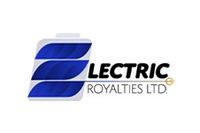SK Innovation Signs Long-term Cobalt Supply Deal with Glencore
The top cobalt producer will supply SK Innovation with up to 30,000 tonnes of cobalt contained in hydroxide between 2020 and 2025.
Battery maker SK Innovation (KRX:096770) has signed a six year cobalt supply deal with mining giant Glencore (LSE:GLEN,OTC Pink:GLCNF).
The top producer will supply SK Innovation with up to 30,000 tonnes of cobalt contained in hydroxide between 2020 and 2025. Cobalt hydroxide is the main raw material feed for the battery industry.
“We assume global cobalt demand for electric vehicle (EV) batteries will be 32,000 tonnes in 2020 and 92,000 tonnes in 2025. With this contract, SK Innovation can produce batteries for 3 million EVs,” SK Innovation said in a press release.
With this new deal, more than 60 percent of Glencore’s production from the Democratic Republic of Congo (DRC) is locked up for the next six years in long-term agreements, according to Benchmark Mineral Intelligence.
In May, Glencore signed a deal to supply cobalt to Belgian battery materials producer Umicore (OTC Pink:UMICF,EBR:UMI), which said Glencore’s output meets its responsible sourcing standards.
In October, Glencore signed a new cobalt supply deal with Chinese battery materials maker GEM (SZSE:002340). The Swiss trader will provide GEM with at least 61,200 tonnes of cobalt from 2020 to 2024.
“There is little doubt that in times of a tight market, Glencore will look more favourable towards long term contracted customers than the smaller volume spot market,” Benchmark Mineral Intelligence analysts said at the time.
Under the terms of the SK Innovation agreement, cobalt will be sourced from Glencore’s industrial mining operations located in the DRC — the world’s top cobalt producer, where mining has often been linked to human rights abuses and child labor.
Both parties have agreed that the DRC operations will be independently audited each year against the “Cobalt Refinery Supply Chain Due Diligence Standard.” This standard is defined by the Responsible Mining Initiative.
Glencore’s total cobalt production in 2018 reached 42,200 tonnes with 38,400 tonnes coming from its African assets. In the DRC, Glencore owns interests in two cobalt mines, Katanga and Mutanda.
After saying in August that the mine was “no longer economically viable,” Glencore shut its Mutanda mine for two years in November — a month earlier than expected. The news of the Mutanda closure fueled a price rally, although prices have stabilized since then.
Mutanda, the world’s largest cobalt mine, produced more than 27,000 tonnes last year, a fifth of global cobalt supply.
According to Benchmark Mineral Intelligence, the closure will see 20 percent of the world’s cobalt supply come offline and, as a result, the market has shifted toward structural undersupply by as early as 2020 — three years sooner than expected.
Don’t forget to follow us @INN_Resource for real-time news updates!
Securities Disclosure: I, Priscila Barrera, hold no direct investment interest in any company mentioned in this article.

